

Barry Brown
Born: April 19, 1951
Died: June 27, 1978
in San Jose, California, USA
Died: June 27, 1978
in San Jose, California, USA
From Wikipedia, the free encyclopedia
Barry Brown (April 19, 1951 – June 25, 1978) was an American author, playwright and actor who performed on stage and in television dramas and feature films, notably as Frederick Winterbourne in Peter Bogdanovich's Daisy Miller (1974), adapted from the classic Henry James novella (1878). Bogdanovich praised Brown's contribution to the film, describing him as "the only American actor you can believe ever read a book."
Description above from the Wikipedia article Barry Brown (actor), licensed under CC-BY-SA, full list of contributors on Wikipedia.
Barry Brown (April 19, 1951 – June 25, 1978) was an American author, playwright and actor who performed on stage and in television dramas and feature films, notably as Frederick Winterbourne in Peter Bogdanovich's Daisy Miller (1974), adapted from the classic Henry James novella (1878). Bogdanovich praised Brown's contribution to the film, describing him as "the only American actor you can believe ever read a book."
Description above from the Wikipedia article Barry Brown (actor), licensed under CC-BY-SA, full list of contributors on Wikipedia.
Movies for Barry Brown...
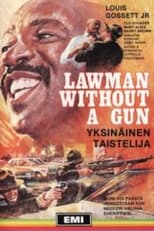
Title: Lawman Without a Gun
Character: Fred Tayman
Released: May 30, 1979
Type: Movie
During the 1960s' civil rights movement, a black civil rights worker returns to his small Southern town and runs for sheriff against the incumbent, a popular segregationist.

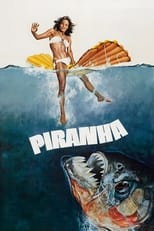
Title: Piranha
Character: Trooper
Released: August 3, 1978
Type: Movie
When flesh-eating piranhas are accidently released into a summer resort's rivers, the guests become their next meal.

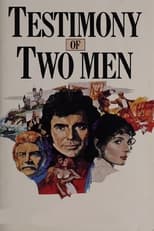

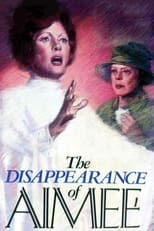
Title: The Disappearance of Aimee
Character: Wallace Moore
Released: November 17, 1976
Type: Movie
In 1926, celebrated evangelist Aimee Semple McPherson mysteriously disappeared. She turned up several weeks later and recounted the details of her kidnapping and escape to authorities. Not everyone believed her, however, and she was accused of having gone away to have an affair with a married man. A court hearing took place to reveal the truth.

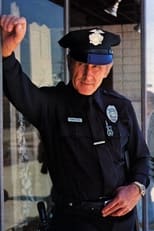
Title: Joe Forrester
Released: September 9, 1975
Type: TV
Joe Forrester is an American Crime/Drama TV series, starring Lloyd Bridges.


Title: The Ultimate Thrill
Character: Joe Straker
Released: October 1, 1974
Type: Movie
At a Colorado ski resort, a jealous man's paranoia results in murder.


Title: Police Woman
Released: September 13, 1974
Type: TV
Sergeant “Pepper"” Anderson, an undercover cop for the Criminal Conspiracy Unit of the Los Angeles Police Department, poses undercover from mob girl to prostitute.


Title: Rhoda
Released: September 9, 1974
Type: TV
Rhoda is an American television sitcom, starring Valerie Harper, which aired 109 episodes over five seasons, from 1974 to 1978. The show was a spin-off of The Mary Tyler Moore Show, in which Harper between the years 1970 and 1974 had played the role of Rhoda Morgenstern, a spunky, weight-conscious, flamboyantly fashioned Jewish neighbor and native New Yorker in the role of Mary Richards' best friend. After four seasons, Rhoda left Minneapolis and returned to her original hometown of New York City. The series is noted for breaking two television records, and was the winner of two Golden Globes and two Emmy Awards.
Rhoda was filmed Friday evenings in front of a live studio audience at CBS Studio Center, Stage 14 in Studio City, Los Angeles, California.


Title: Daisy Miller
Character: Frederick Winterbourne
Released: May 22, 1974
Type: Movie
Despite mixed emotions, Frederick Winterbourne tries to figure out the bright and bubbly Daisy Miller, only to be helped and hindered by false judgments from their fellow friends.

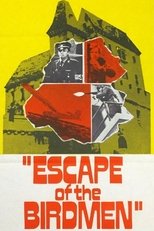
Title: The Birdmen
Character: Donnelly
Released: November 8, 1973
Type: Movie
During WWII an American soldier sent to Norway to help with the escape of a scientist working on the atomic bomb for the Germans. Before they can escape they are captured and sent to a POW prison camp in an alpine castle. Cook must find a way to escape with the scientist before the Gestapo discover the Norwegian's true identity and convinces the other prisoners to build a two person glider in which they plan to escape.

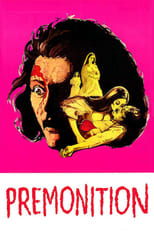
Title: Premonition
Character: Mike
Released: November 1, 1972
Type: Movie
A hippie student and his friends share deadly premonitions.

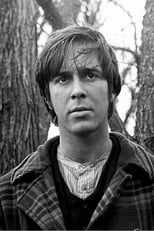
Title: Lapin 360
Released: October 8, 1972
Type: Movie
Delia Peletier has been paid to have a child for a wealthy man who wants an heir. She has the baby and turns it over to her "employer," but subsequently decides she wants the child back. She hires three men to kidnap the child. The quartet hides out in the house of Bernard Lapin, a nuclear scientist they believe to be away on business. Lapin returns, however, and becomes romantically involved with Delia. Meanwhile, her three kidnappers turn on her when they learn she actually wants the child and not the ransom money as she claimed.

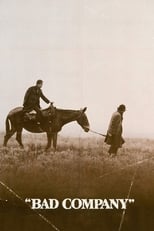
Title: Bad Company
Character: Drew Dixon
Released: October 8, 1972
Type: Movie
After Drew Dixon, an upright young man, is sent west by his religious family to avoid being drafted into the Civil War, he drifts across the land with a loose confederation of young vagrants.

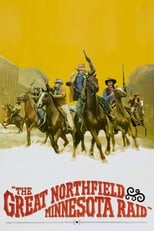
Title: The Great Northfield Minnesota Raid
Character: Henry Wheeler
Released: May 12, 1972
Type: Movie
The gangs of Jesse James and Cole Younger join forces to rob the First National Bank in Northfield, Minnesota, but things do not go as planned.

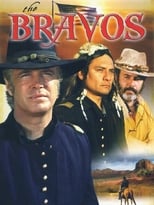
Title: The Bravos
Character: Garratt
Released: January 9, 1972
Type: Movie
The commander of an isolated frontier cavalry post tries to stop an Indian war and find his son, who has been kidnapped.

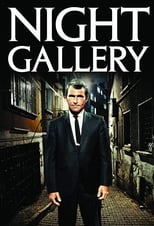
Title: Night Gallery
Character: Archie Dittman Jr. (segment "Clean Kills and Other Trophies")
Released: December 16, 1970
Type: TV
Rod Serling narrates an anthology of fantasy, horror and sci-fi stories from a set resembling a macabre museum. A chilling work of art serves as the connective link between the stories.

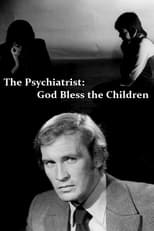
Title: The Psychiatrist: God Bless the Children
Character: Fritz
Released: December 14, 1970
Type: Movie
A hip psychiatrist teams up with an ex-addict to combat drug addiction in a small town in this pilot for "The Psychiatrist."

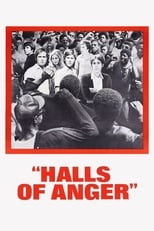
Title: Halls of Anger
Character: Winger
Released: April 29, 1970
Type: Movie
An all-black inner city school has to become an integrated school. Few dozen white kids are transfered there, but the black students are aggressively opposed to this. The school then approaches a tough black teacher for help.

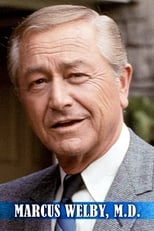
Title: Marcus Welby, M.D.
Character: Greg Wells Jr.
Released: September 23, 1969
Type: TV
Marcus Welby, M.D. is an American medical drama television program that aired on ABC from September 23, 1969, to July 29, 1976. It starred Robert Young as a family practitioner with a kind bedside manner and James Brolin as the younger doctor he often worked with, and was produced by David Victor and David J. O'Connell. The pilot, A Matter of Humanities, had aired as an ABC Movie of the Week on March 26, 1969.

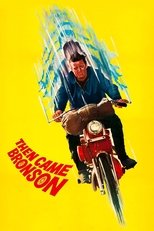
Title: Then Came Bronson
Released: September 17, 1969
Type: TV
Then Came Bronson is an American adventure/drama television series starring Michael Parks that aired on NBC from 1969 to 1970, and was produced by MGM Television. The series, created by Denne Bart Petitclerc, began with a movie pilot on Monday, March 24, 1969. The series was approved for one year and began its first run on September 17, 1969. The pilot was also released in Europe as a feature film.


Title: Flesh
Character: Hustler
Released: December 16, 1968
Type: Movie
A heroin junkie works as a prostitute to support his habit and fund an abortion needed by the girlfriend of his lesbian wife. His seedy encounters with delusional and damaged clients, and dates with drag queens and hustlers are heavy on sex, drugs and decadence.

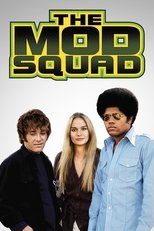
Title: The Mod Squad
Released: September 24, 1968
Type: TV
The Mod Squad was the enormously successful groundbreaking "hippie" undercover cop show that ran on ABC from September 24, 1968, until August 23, 1973. It starred Michael Cole as Pete Cochren, Peggy Lipton as Julie Barnes, Clarence Williams III as Linc Hayes, and Tige Andrews as Captain Adam Greer. The executive producers of the series were Aaron Spelling and Danny Thomas.
The iconic counter-culture police series earned six Emmy nominations, four Golden Globe nominations plus one win for Peggy Lipton, one Directors Guild of America award, and four Logies. In 1997 the episode "Mother of Sorrow" was ranked #95 on TV Guide's 100 Greatest Episodes of All Time.

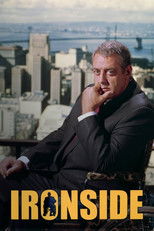
Title: Ironside
Released: March 28, 1967
Type: TV
When an assassin's bullet confines him to a wheelchair for life ending his career as Chief of Detectives, Robert T. Ironside becomes a consultant to the police department. Detective Sergeant Ed Brown and policewoman Eve Whitfield join with him to crack varied and fascinating cases. Ex-con Mark Sanger is employed by the chief as home help but eventually becomes a fully fledged member of the team also. Officer Whitfield leaves after 4 years service, and is replaced by Officer Fran Belding.


Title: The Teen-Age Revolution
Released: October 19, 1965
Type: Movie
Documentary about teenage life in the mid-60s.


Title: Gunsmoke
Character: Jared Sprague
Released: September 10, 1955
Type: TV
Gunsmoke is an American radio and television Western drama series created by director Norman MacDonnell and writer John Meston. The stories take place in and around Dodge City, Kansas, during the settlement of the American West. The central character is lawman Marshal Matt Dillon, played by William Conrad on radio and James Arness on television.

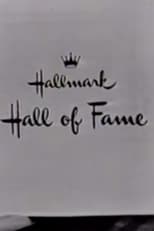
Title: Hallmark Hall of Fame
Character: Wallace Moore
Released: December 24, 1951
Type: TV
Hallmark Hall of Fame is an anthology program on American television, sponsored by Hallmark Cards, a Kansas City based greeting card company. The longest-running primetime series in the history of television, it has a historically long run, beginning during 1951 and continuing into 2013. From 1954 onward, all of its productions have been shown in color, although color television video productions were extremely rare in 1954. Many television movies have been shown on the program since its debut, though the program began with live telecasts of dramas and then changed to videotaped productions before finally changing to filmed ones.
The series has received eighty Emmy Awards, twenty-four Christopher Awards, eleven Peabody Awards, nine Golden Globes, and four Humanitas Prizes. Once a common practice in American television, it is the last remaining television program such that the title includes the name of the sponsor. Unlike other long-running TV series still on the air, it differs in that it broadcasts only occasionally and not on a weekly broadcast programming schedule.
